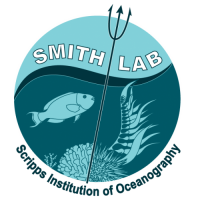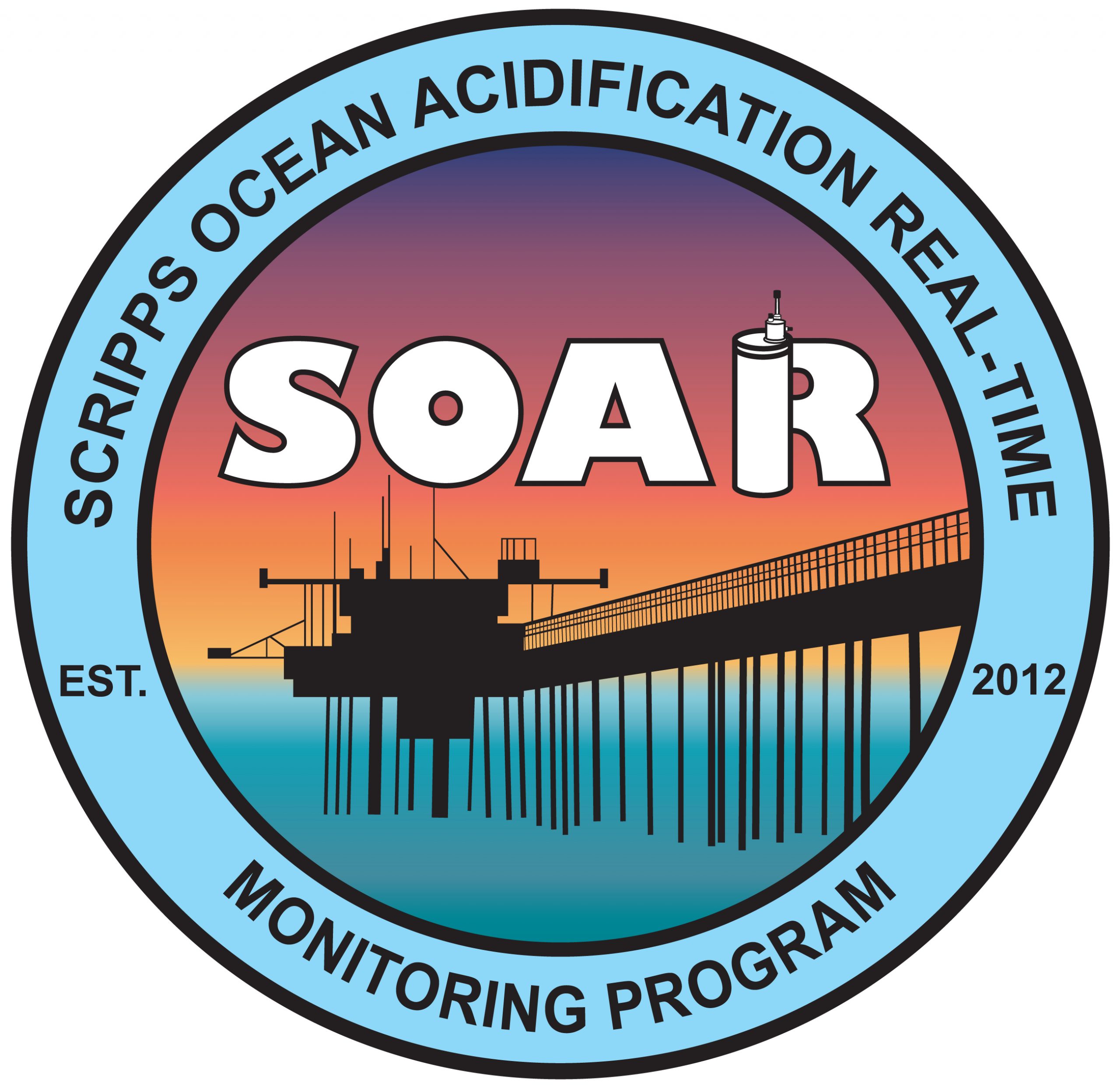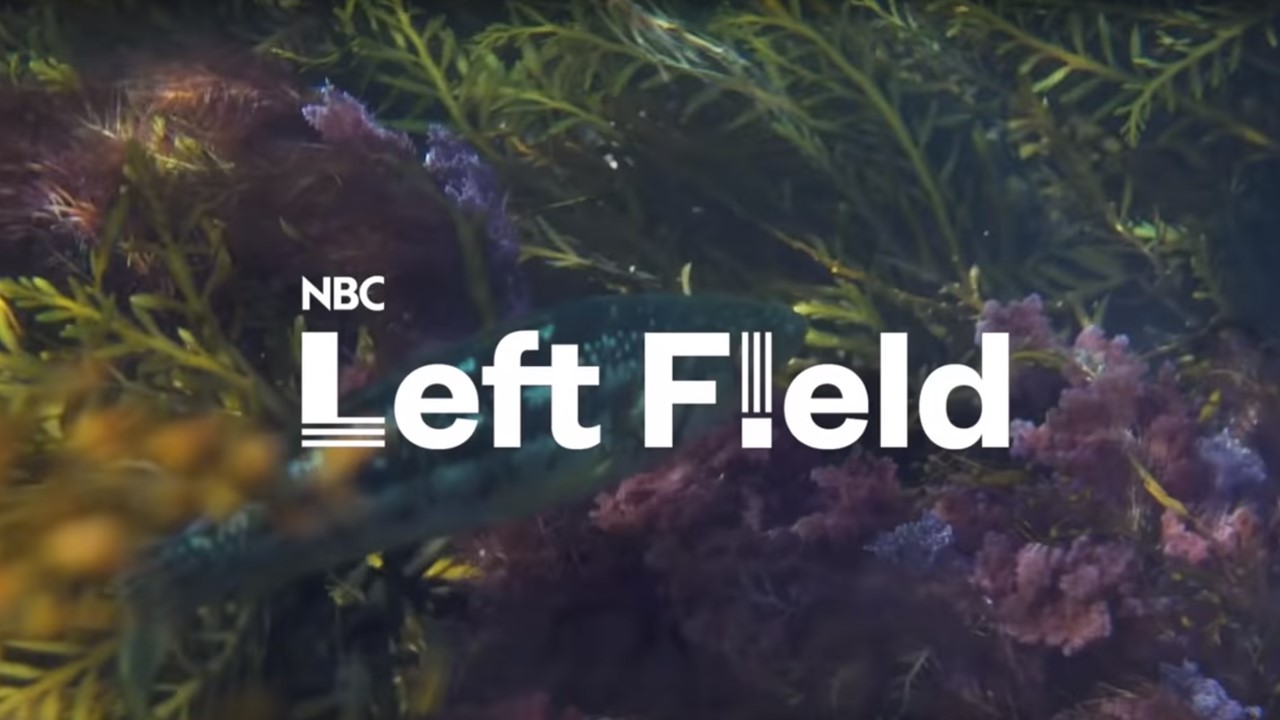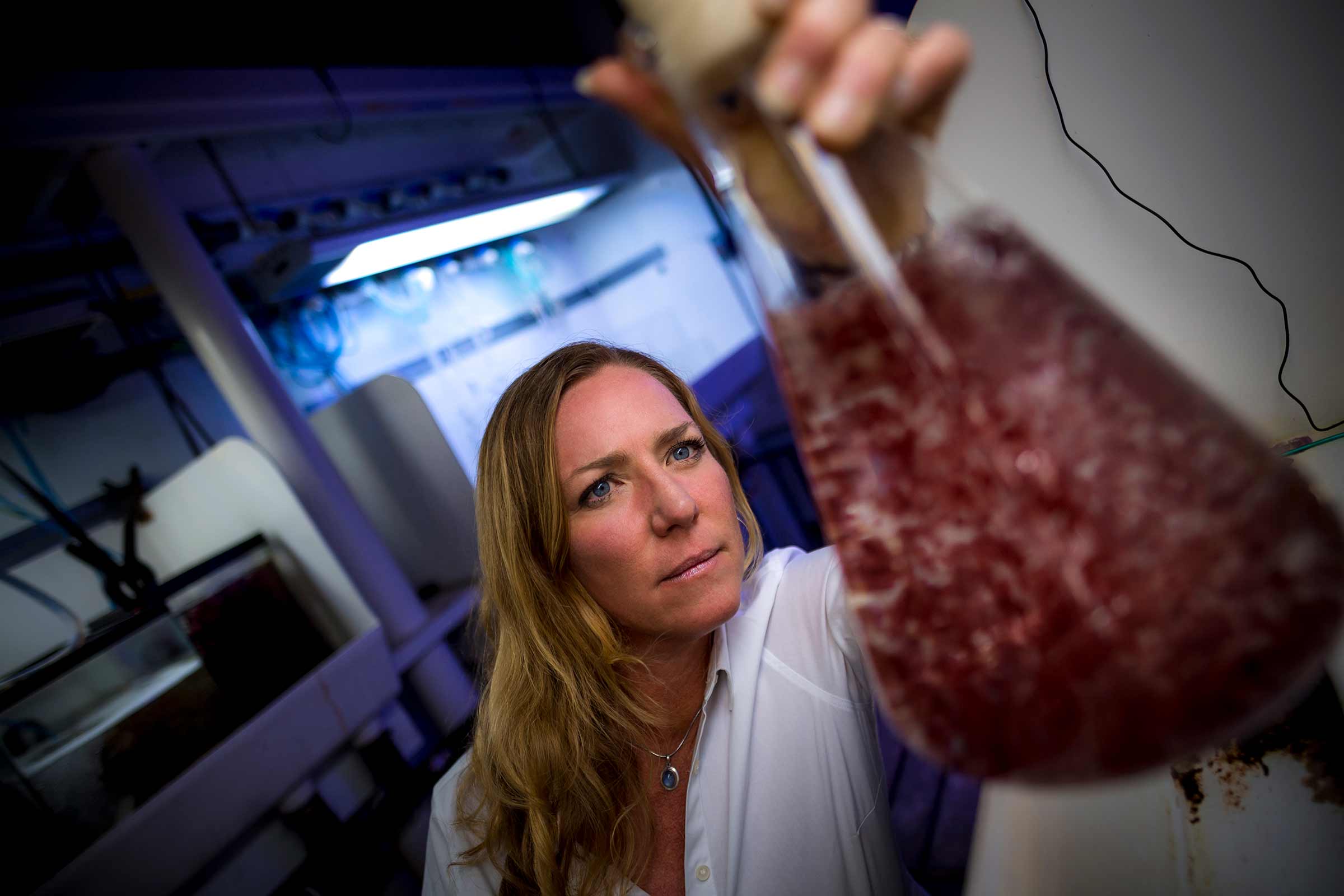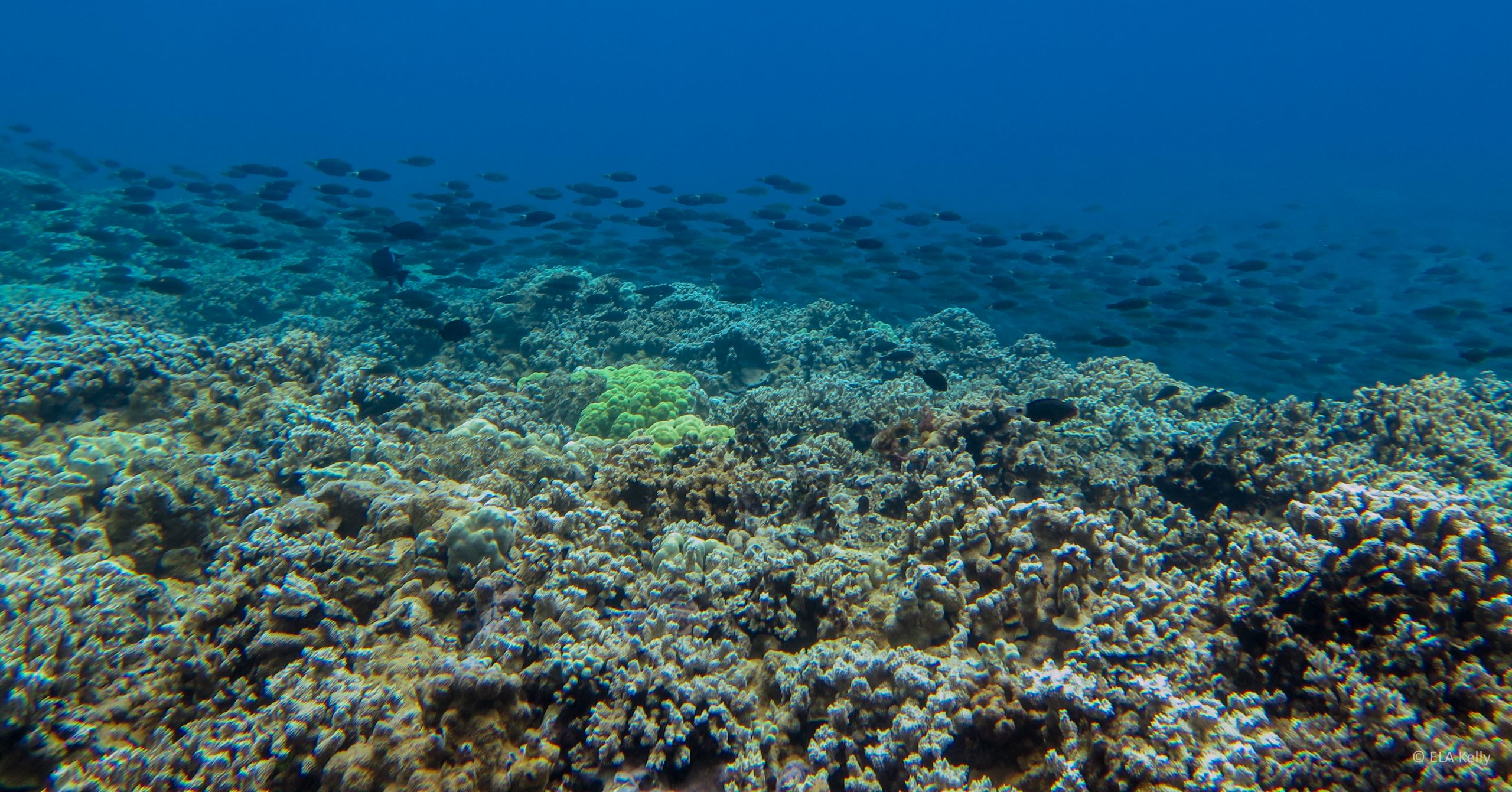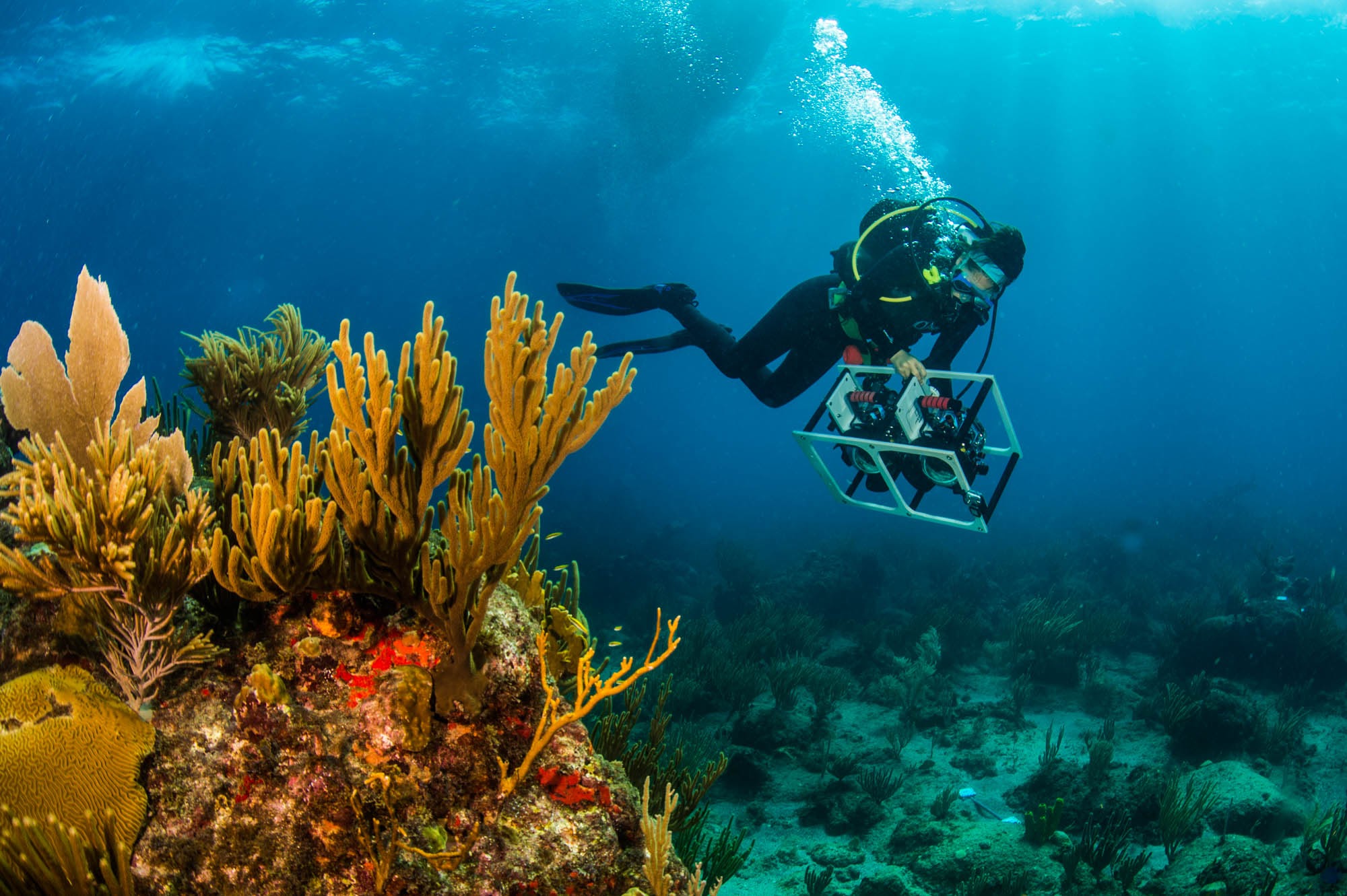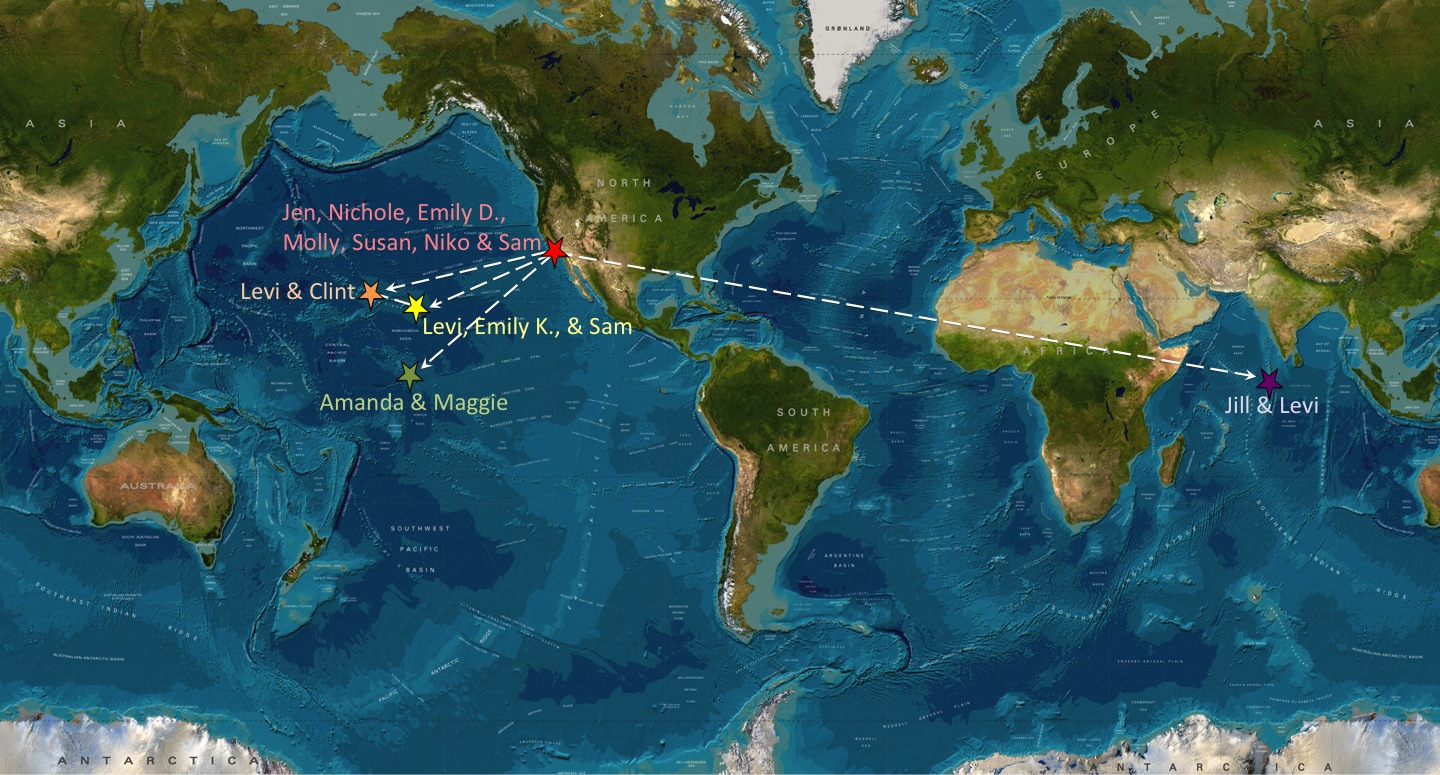If you’re a resident of Southern California (and maybe even if you’re not) you likely heard about the recent red tide bloom (and subsequent smelly fish and invertebrate die-offs) that saturated the coastline of Southern California. Here at Scripps Oceanography, it was the main topic of conversation to break the monotony of COVID-19 information and pandemic updates. For those of us … Read More
Can California get cows to burp less methane? Check out this story by NBC
Dr. Jen Smith was recently interviewed by NBC – the latest story on Asparagopsis taxiformis is officially out, and this time we get to hear from people who make their living maintaining cattle ranches and dairy farms in addition to the scientists! Check out the video below to learn more!
UCSD Research highlight: “Usurp the Burp”
This week Dr. Jen Smith’s research was featured by the UC San Diego News Center, highlighting her recent collaboration with agricultural scientists at UC Davis. Dr. Smith is researching methods of cultivation of Asparagopsis taxiformis, a red seaweed that has been discovered to reduce methane emissions from cow burps in studies conducted at UC Davis. She’s also working with scientists at … Read More
Smith Lab awarded grant by the California Ocean Protection Council to study effects of sea level rise on intertidal communities
The Smith Lab was recently awarded a grant by the California Ocean Protection Council to study the effects of sea level rise on intertidal communities – that is, the life that thrives in the zone that is exposed to the air at low tide and covered by water at high tide. This project will use technology similar to that used … Read More
Herbivore management may be the key to balancing the energetic budget on coral reefs
A new paper published by Emily Kelly and colleagues explains how we can balance the energetic budget on Hawaiian coral reefs through herbivore management and protection. Herbivores on coral reefs play an important role in controlling algal growth, but in systems where density of herbivores is low, algae can grow at a faster rate than they are consumed, resulting in a … Read More
Curious about the “100 Island Challenge”? Check out this article to learn more!
The 100 Island Challenge is a collaborative project led by Dr. Stuart Sandin’s lab, co-led by Dr. Jen Smith, that aims to work with partners worldwide to assess reef health in a holistic way that is comparable across all sites. News Deeply recently interviewed Dr. Smith to learn more about the goals of the 100 Island Challenge in assessing reef … Read More
Smith lab and colleagues publish new paper looking at microbes on coral reefs
Global microbialization of coral reefs Abstract: Microbialization refers to the observed shift in ecosystem trophic structure towards higher microbial biomass and energy use. On coral reefs, the proximal causes of microbialization are overfishing and eutrophication, both of which facilitate enhanced growth of fleshy algae, conferring a competitive advantage over calcifying corals and coralline algae. The proposed mechanism for this competitive … Read More
Published Results on Invasive Algae in San Diego
Smith Lab members Niko Kaplanis and Jill Harris recently published the results of their San Diego County non-native algae research project conducted between 2012 and 2014. This work documented patterns of establishment, spread, and persistence for two non-native algal species in San Diego county and analyzed this invasion in the larger geographic context of the entire Pacific Coast of North … Read More
Coral Club with Nick Graham
The San Diego Coral Club is a monthly informal gathering of coral reef researchers visiting or working in the San Diego area. From students to established scientists, these coral reef enthusiasts have the opportunity to present preliminary data and discuss hot research topics among their peers. Also it’s a great environment to develop new collaborations and exchange ideas about coral reef science and the conservation of tropical reefs over wine and pizza.
Smith Lab is in Full Swing for Summer
Master’s student Samantha Clements summarizes the ongoing summer activities of the Smith Lab. From research travels around the world to data processing right here at home, there’s no such thing as summer break from science… and it’s awesome!
- Page 1 of 2
- 1
- 2

